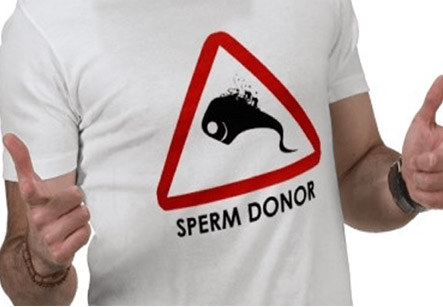Sperm Donation
Introduction
Donated sperm can be used in a variety of ways to help single women and couples build biological or genetic families.
Inclusion criteria for sperm donations- Below given conditions immediately disqualify a potential donor from donating sperm:
• Men with a history of genetic diseases in the family (i.e. cystic fibrosis, sickle cell anemia, etc.) cannot donate sperm.
• Homosexual men and men who have had sex with other men cannot donate sperm.
A potential donors need to undergo a rigorous screening process before they are chosen to donate sperm. Iran ranks first in the region in terms of infertility treatment studies

• Intravenous drug users cannot donate.
• Men who have visited areas where considerable numbers of AIDS cases have been reported and have had sex with either women or men living there cannot donate sperm.
Donor Screening Process
A potential donors need to undergo a rigorous screening process before they are chosen to donate sperm. Donor screening consists of questionnaires, blood screening, specimen screening, genetic analysis and a physical evaluation. The stepwise process is as given below:
• Comprehensive interviews about sexual behaviour, family background and reasons for participating in the sperm donation program.
• An extensive family history (spanning in some cases, three generations), is evaluated.
• The semen is analyzed for sperm cell count, forward sperm cell motility, and normal sperm morphology.
• The candidate is tested for infectious diseases like HIV, Hepatitis B, and Hepatitis C (and others).
• ABO-Rh blood typing.
• Genetic testing for cystic fibrosis.
• This screening process takes from 8 weeks to 6 months depending on the sperm bank to which the donor is applying.
Sperm donation process:
The donation process is simple.
• The donor is sent to a private room and masturbates into a sterile container.
• The semen sample is collected from the container and is mixed with a cryopreservative solution.
• It divided in aliquots, sealed in vials and frozen with liquid nitrogen.
• The frozen semen is stored at -321 degrees F.
• When needed, the semen sample is thawed and used in artificial insemination.
Candidates for donated sperm:
• Single women and lesbian couples: The only means for women without male partners to become biological parents is via donated sperm or a donated embryo.
• Heterosexual couples in which the male is sterile, has a low sperm count or poor sperm quality.
• Couples who want to avoid passing on a genetic disease or disorder that is carried by the male’s sperm.
Usage of donated sperms: Intrauterine insemination (IUI) with donated sperm, where a doctor inserts the sperm into the woman’s uterus, has been in practice for over a century. But today, donated sperm is used in a variety of assisted reproductive technologies (ART), including in vitro fertilization (IVF), where the egg and sperm are fertilized in a laboratory and implanted in the woman’s uterus, gamete intra-fallopian transfer (GIFT), zygote intra-fallopian transfer (ZIFT), intra-cytoplasmic sperm injection (ICSI), and in surrogacy or gestational carriers.
Finding a sperm donor
• Cryobanks or sperm banks are the most common source of donated sperm.
• However, some women turn to a trusted male friend or relative for sperm, or seek a male donor with specific characteristics via newspaper and website ads.
• Many sperm banks freeze the donated sperm for future use.
• They’re required to test the sperm for HIV and other transmittable diseases and to keep samples frozen for six months or more and then retest the donors.
When selecting a sperm donor, you may look for one with ideal traits for your hoped-for child, such as eye colour or a high intelligent quotient. While sperm banks can match sperm for such characteristics, along with race and ethnicity, you first need to decide if you want an “anonymous” sperm donor or one willing to reveal his identity at a later date. Each choice has its pros and cons. Using a sperm bank usually means the sperm donor will be anonymous, although many now require donors to sign documents agreeing to make their identities known to the future child at a certain age, usually at age 18. You should check the sperm bank’s policies on anonymity.